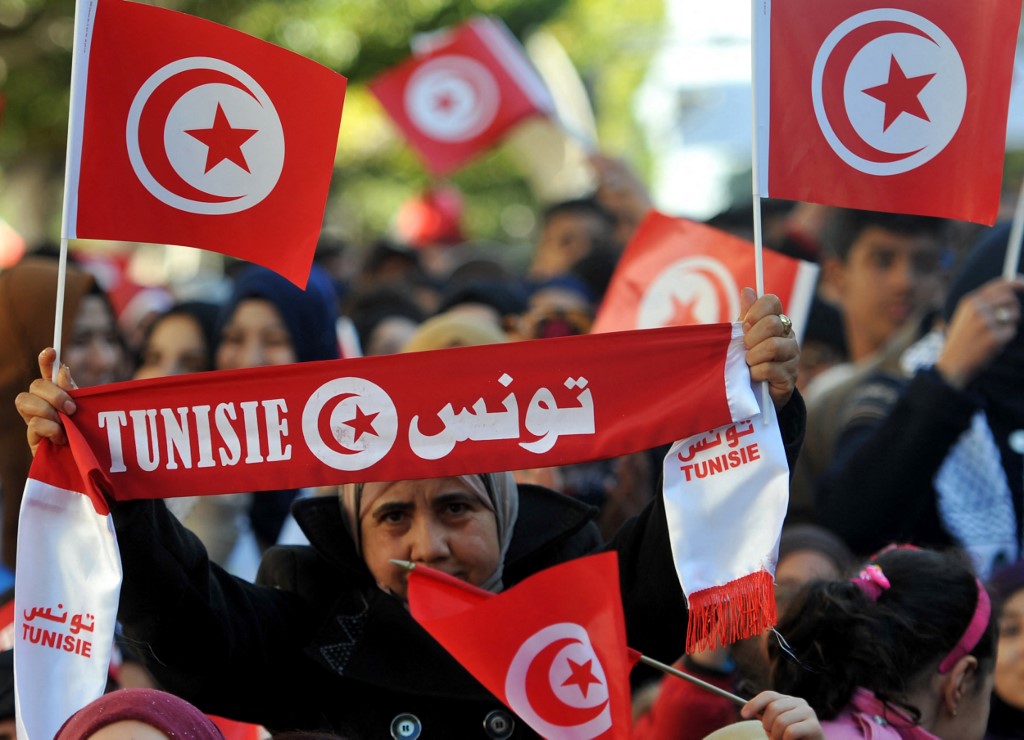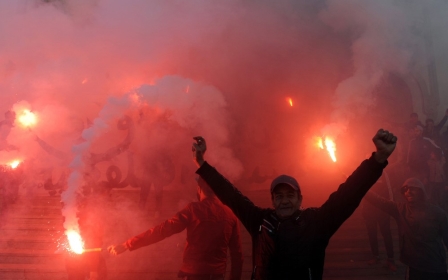Arab Spring: Why western narratives still miss the point

Anniversaries have symbolic power, which can be a good opportunity to take stock of what happened and reflect on the positives and negatives. They can also be dynamic moments where we think about how to move forward. 2021 constitutes such a moment, as it coincides with the 10th anniversary of the Arab Spring.
Back in 2011, a wave of revolt spread across the Middle East and North Africa region, in what came to be called the Arab Spring. The uprisings shook the world. In Tunisia and Egypt, they ignited historic upheavals in North Africa and beyond, as people cheered the toppling of the dictatorial Ben Ali and Mubarak regimes, and looked ahead to meaningful changes in their lives.
These uprisings, like most revolutionary situations, released enormous energy; an unparalleled sense of renewal and a shift in political consciousness.
The narrative advanced is one of despair and hopelessness: the uprising was not worthwhile - it would have been better to remain in poverty and chains
The peoples of the region are all too familiar with the racist stereotypes in the facile falsehood that “Arabs and Muslims are not fit for democracy and are incapable of governing themselves”. Imperial and colonial dominance over the region have led to it being viewed in some quarters as a homogeneous entity, systematically reduced through negative tropes.
Orientalist imagery of conflict and wars, ruthless dictators and passive populations, terrorism and extremism, rich oil reserves and expansive deserts - such rigid representations of "the Other" are a hallmark of the type of political and geographic violence that has been so well articulated by Edward Said.
Stay informed with MEE's newsletters
Sign up to get the latest alerts, insights and analysis, starting with Turkey Unpacked
The uprisings shattered many of these stereotypes and debunked numerous myths. The winds of revolution that began to blow in December 2010 spread from Tunisia to Egypt, Libya, Syria, Yemen, Bahrain, Jordan, Morocco and Oman. The emancipatory experience was contagious, inspiring people all over the world: activists in Madrid, London and New York, whether calling themselves the Occupy movement or the Indignados, were all proud to “walk like an Egyptian”.
Deep polarisation
While the last three to four decades have seen attempts to delegitimise radical change through revolution, following the shortcomings and defeats of decolonisation efforts in various parts of the Global South, emancipatory revolutions and uprisings will continue.
Yet, we cannot deny that what started as inspiring uprisings against authoritarianism and oppressive socioeconomic conditions - demanding bread, justice and dignity - morphed into violence and chaos, profound polarisation, counter-revolution and foreign intervention. Various people’s movements found themselves pitted against entrenched authoritarian and counter-revolutionary forces bent on suppressing them. All were met with resistance from the state, often in conjunction with global capital and foreign interference.
The military coup in Egypt ended up restoring a much more ruthless and repressive form of dictatorship. The brutal descent into civil wars in Syria, Libya and Yemen, and the series of crackdowns in Gulf countries such as Bahrain, highlighted the cruel logic of proxy war, so reminiscent of the colonial schemes known all too well across the region.
Tunisia, which had seemed to be the exception to this gloom and doom, is now in a fragile position. And the deep polarisation (Islamist versus secularist) imposed on the masses have distracted them from the key socioeconomic issues that originally launched the uprisings.
Some mainstream commentators have argued that the Arab Spring gave way to an “Islamist winter”, with Islamist forces coming to power in some countries. Other progressive voices have been less pessimistic, offering a more historically nuanced perspective that views these events as part of a long-term revolutionary process, with ups and downs, periods of radicalisation and counter-revolution.
The latter view received some vindication when, eight years after the 2010/11 events, a second wave of uprisings gripped Sudan, Algeria, Iraq and Lebanon, followed by a return to the spotlight this year of the unending and heroic Palestinian struggle - all highlighting people’s determination to continue fighting for their rights and sovereignty.
New horizons
The momentous events that have unfolded between 2010 and 2021 have opened new horizons for people to express their discontent and demand radical change and reforms, forcing almost every government in the region to make political and economic concessions.
Various misconceptions have also emerged, including attempts by the mainstream media, western governments and international financial institutions to portray the uprisings merely as revolts against authoritarianism, seeking the stunted type of political freedoms and democracy that exist in western countries. This avoids any class analysis and separates politics from economics, ignoring the fundamental socioeconomic demands of bread, justice and dignity.
But the distortions did not stop there. The Tunisian and Egyptian uprisings were dubbed by western commentators as “Facebook and Twitter revolutions”, exaggerating the role of social media in fomenting them. Another dominant, but no less superficial, framing interpreted the revolts as primarily youth uprisings against the older generation - the product of a “youth bulge” in affected countries.
A decade later, mainstream narratives commemorating the 10th anniversary have gained little insight. Reports speak of failed and lost revolutions, and of broken promises. But the dominant tone is captured in the headline of a Guardian article published last December, referring to Mohamed Bouazizi, the street vendor who set himself on fire, catalysing the Arab uprisings: “‘He ruined us’: 10 years on, Tunisians curse man who sparked Arab Spring.”
The narrative advanced is one of despair and hopelessness: the uprising was not worthwhile - it would have been better to remain in poverty and chains. Such interpretations must be strongly challenged and deconstructed in order to advance a more nuanced, less idealistic reading of the revolutionary process.
Revolutionary dynamics are complex, coming with inevitable crises, shortcomings and failings.They are imbued with counter-revolutionary tendencies and encroached upon by reactionary forces. That people in the region are continuing to revolt highlights this complexity.
Ultimately, the ideas people hold about revolutions can significantly affect their outcomes, which is why we must reflect upon and learn from past uprisings.
This is an edited version of the introduction to the dossier The Arab Uprisings: A Decade of Struggles, produced by the Transnational Institute.
The views expressed in this article belong to the authors and do not necessarily reflect the editorial policy of Middle East Eye.
Middle East Eye delivers independent and unrivalled coverage and analysis of the Middle East, North Africa and beyond. To learn more about republishing this content and the associated fees, please fill out this form. More about MEE can be found here.






